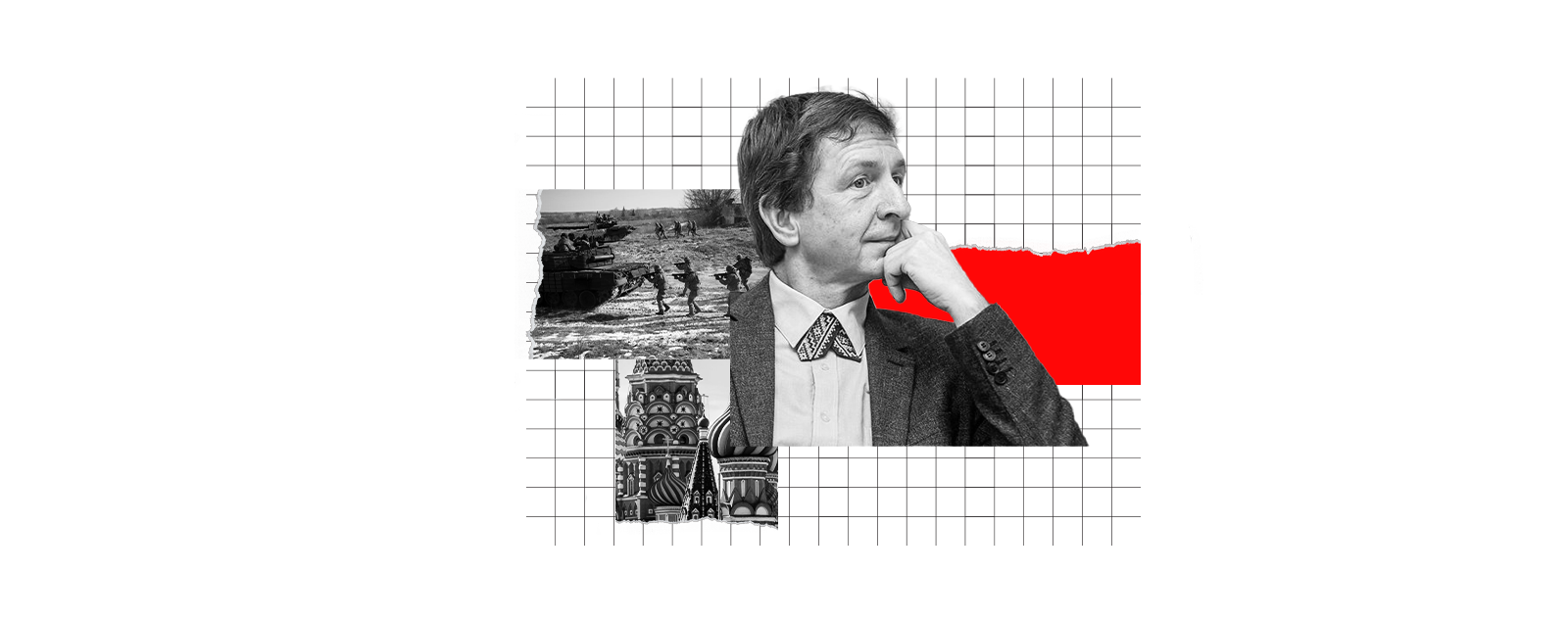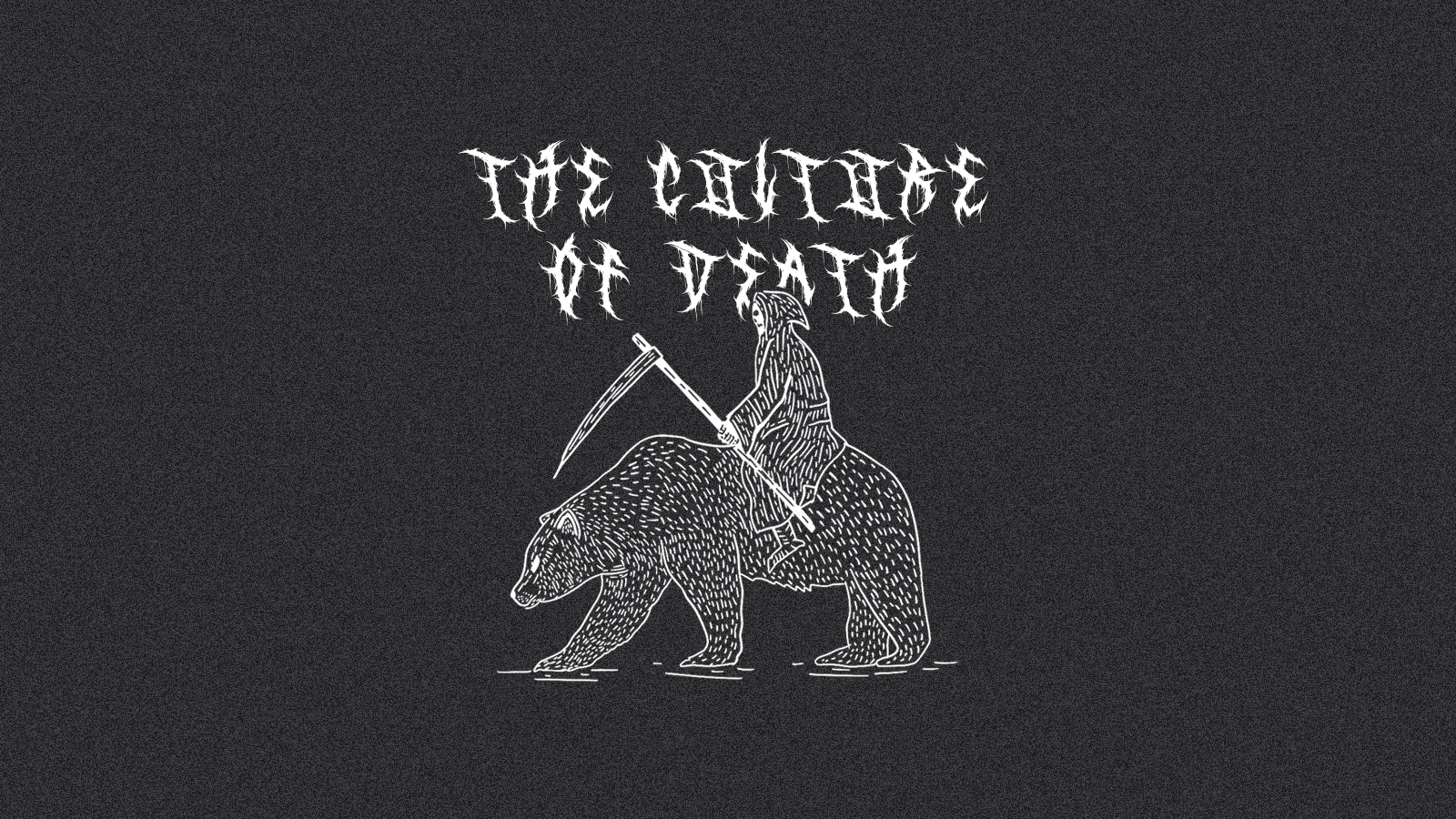Russian society is fragmented and atomized, and does not believe in collective public action—said Andrey Makarychev, Professor at University of Tartu, who left Russia a decade ago. He explains how Russia lost huge parts of its population during the last century, and much more. Interview on Hype&Hyper.
You left Russia ten years ago and now you are living in Estonia. Now, that resettlement would be impossible.
After the war restarted, because of the growing number of people who left Russia a ban was introduced by the Estonian government. That was in August 2022, when even people with Schengen visa could not travel, like my brother, who lives in Russia. Estonia with two other Baltic states introduced unprecedented measure of cancelling the already existing Schengen visas and some other ways of settling in Estonia.
In your opinion, is it a mistake to close the borders?
It's a very complicated and controversial question. I don’t know whether it's a mistake or not.
What are the major Estonian arguments?
The first argument is ethical: it's unacceptable that people from a country that kills other people in Ukraine would take advantage of coming to Europe, enjoy our sunny beaches and have fun. It is quite controversial but still it’s a moral algorithm. Germans after the World War II had the experience of being treated like that. The second argument is more practical: there's nothing you can do here, go back to Russia, and clean the mess. It's your country, and democracy implies that you take the future of your country into your own hands.
One can say: “I'm beyond politics. What can I do? I'm just a small little man.”
On the one hand, the Polish Solidarność in 1980 gave an example of effectiveness of political actions. On the other hand, the Baltic states, being parts of the Soviet Union, could do very little against the Soviet regime until it started crumbling in Moscow.

Maybe an argument on social and national security?
Could be. I think there is one more psychological dimension that is a kind of sense of fatigue: we in Europe don’t expect any longer that much from Russia. Now all our expectations are crushed, just leave us alone whether you are ‘good Russian’ or not. There's a combination of different factors that explains this decision.
Were there opportunities for democracy in Russian history?
When the revolution started in 1917 people were part of that process, yet what was the result? Our predecessors wanted to build a proletarian state, a state of justice and equality but they built a cruel dictatorship. The Russian society is frustrated by different experiences. Lenin was popular, otherwise the Red Army would not defeat the White Army, Stalin would not be able to industrialize the country and the Soviet Union would not win the World War II. That was a kind of regime that was created by the activity of people's masses. They tried to build a good state, but failed, and then the state collapsed in 1991. There was a kind of societal enthusiasm of supporting Gorbachev and Perestroika in the late 1980s and that was a very rare and short period in the Russian history when people could have had a window of opportunity to change. The people were active in speaking up, in reading the literature that was prohibited before, they’ve just started looking around with the different plans, but that period did not last too long. Nowadays, I think Russian society is very much disappointed with public actions of protest. The Russians are pretty aware of what happened in Belarus. If you just take a visual look at this protest hundreds-thousands of people were marching shouting ‘go away’. People in Belarus did everything that was possible except taking arms. But the dictatorship became even more oppressive. The city of Khabarovsk was almost unanimously protesting the arrest of its governor, which grew into the local opposition to the Moscow rule. Result?
Zero. Then the future is staying the same?
Russian society is fragmented and atomized, and does not believe in collective public action, it's basically society of private people who mostly support the war, but how many of them would like to take arms and go to war? Many would do better to escape the country as a lot of people did.

Like many of my friends.
Huge masses escaped from country who are basically in their 30s or 40s with a good education and social status. It is a hard decision because basically you lose your job while taking your kids to the middle of nowhere, settling in a completely different country who does not really expect you and it is not supposed to like you. This is a very serious issue, but people would do better to leave the country than join the army.
Partly, however, there are Russian young people who volunteer to go and fight in the trenches.
For money, yes. They come from deep villages and abandoned areas where life is hopeless, where there is abject poverty. Some of them might know that they may not come back but at least their wives and kids can get something material for that. It reveals a very peculiar attitude to issues of life and death.
There were many symbols of the collapse of the Soviet Union. One was the growing social resistance in the Warsaw Pact countries, another was the Chernobyl nuclear disaster and its aftermath, and the third was the Soviet Union's war in Afghanistan. Then, 15,000 soldiers died in 10 years and the Soviet public opinion almost collapsed. Now, in one-year, conservative estimations put the number of deaths ten times higher in Ukraine than that time. What is happening?
I think a series of factors predetermined what I would call ‘the culture of death’ or in other words ‘the legitimation of death’. Religion is one of the factors that contribute to this culture. The Russian orthodox church supports the war. They say: don't you know that your life is just nothing? That you are facing eternal life in the best of the heavens. Now, you only have consumption, sex, nothing valuable but if you go and purify yourself your eternal life will be granted. It sounds crazy, but that's one factor and it's kind of legitimation of ‘the culture of death’. The other factor is the patriotic frenzy; even children in school are singing songs about scarifying human life for the sake of the state. It's an indoctrination from the very beginning assuming that my life means nothing. When Vladimir Putin was meeting mother of soldiers and officers who died in Ukraine, he cynically said: it's a terrible and traumatic loss, but it's better than dying from overconsumption of drug and alcohol or in a car accident. The Russian president basically said that his citizens are drug addicts, or they cannot drive cars, or they are drunk and that's why they die in cars, and this why it is better to take arms and die in a war. At least in that case your family will get respect and some money.
In what else can we observe the ‘culture or legitimation of death’?
During the Covid-19 pandemic there were several media personalities in Russia with a high level of publicity who contributed to normalization of death. One famous doctor, who was always on TV screens, was saying: if you are supposed to die, you will die. If you're infected, it's only your body that can help you. Don't go to the hospital because first, you will infect others so just stay in your home. If you are strong, you'll survive. If you are young, most likely you'll survive. That was not just a single speech act, that was a very consistent general reaction to the pandemic. It could be that this factor also contributed to ‘the legitimation of death’, ‘to the culture of death’.

Where is this way of thinking coming from?
During the last century Russia lost huge parts of its population in different ways. After the revolution of 1917 the best Russian artists, writers, musicians, philosophers left Russia and they made brilliant careers in the US and Europe. Russia lost its intellectual capacity and potential after 1917. Millions died during the civil war and then the Great Patriotic War. Then the intellectual outmigration from the Soviet regime came during the darkest times of the Stalin regime. Now, we have the same trend, people are leaving Russia constantly. According to the estimates Russia lost one million people since 24th of February 2022. They are activists, people with a very strong moral standards, who name things as they are.
One of my Russian friends told me that in Moscow it is impossible to find an IT-specialist.
I would not be surprised. Most of the best Russian analysts, writers, journalists, artists, scholars and public intellectuals are beyond Russia.
It is in favor of Putin, no opposition left in the country.
Exactly. In this sense, Putin is smarter than the Soviet regime because they closed the border. Nowadays if you're not happy, just go away. Recently the government is more concerned about outmigration because they need soldiers and that's the only thing that motivates them to be a little bit more restrictive about the border crossing. But still, borders are open. They’re semi-closed on the side of Western countries but if you want to escape to Mongolia, to Kazakhstan or to Georgia you are free to go. There are 140 million of people, if Putin loses a part of them, for him it is not the problem at all because the systems will work.
What did you feel on the day of the victory, 9th of May?
I think that this should be a very private commemorative event. I'm very skeptical about exposing feelings to the relatives who passed away publicly, especially marching with their photos. I think for a feeling of mourning and sorrow, you don't need an audience. If you really like to memorize, remember your predecessors, go to church, or stay home in silence. Collective memory is an artificial and metaphoric construct. People with medical background will say that the memory is unique. I remember my grandfather, who was fighting in World War II, but this is my private sphere. It’s the history of my family. Why should I share my feelings with someone? Also, it's important what is between the lines: all those celebrations that are in one way or another sponsored or supported by the Russian state contain some kind of aggression and imperialistic vibe. It is dangerous. On the one hand, we are all aware of the slogan ‘never again’. On the other hand, some Russians say, ‘if needed, we can repeat’. The country lost millions of people, and someone dares to say: if needed, we can repeat. Seriously? That's the level of a moral and ethical decay in Russian society.
Will you ever return to your homeland?
Most likely I will never come back to Russia in my life. I don't have any expectations about that.










